Panels
Plenary Panel 1 (14 October 2019, 11:00 – 12:00):
Morocco Smart Nation
Background:
The mobilization of Moroccan skills residing abroad consists in calling on Moroccan skills with expertise, experience and know-how, and who are ready to put them to work for the development of Morocco punctual or permanent. The interest of this panel is justified by the existence of highly qualified profiles among the Moroccans of the world (More than 400,000 MRE have a level Bac + 5 and more), their determination to make their contribution to the development of their country of origin as well as the existence of numerous sectoral plans committed in Morocco favoring this type of participation.
How can these skills help to build smart cities?
Key Objectives for discussion:
- Improving technical and cultural knowledge in the areas of smart cities
- Providing advanced techniques for sustainable regeneration in its various forms: mobility, technological networks, the system of greenery and centrality, the landscape, with special attention to the legal, administrative, social and environmental aspects.
Moderator & Panelist
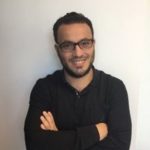
Mostafa CHRIRAA
Head of IT Line Execution & Clearing Services
chez CACEIS
Panelists
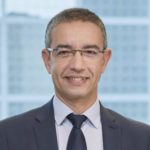
Brahim GARDA
Directeur Santé et Sécurité, Méthode et Performance/Directeur de la Transformation chez ENGIE Ineo
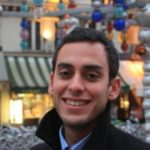
Hamza Ouazzani Chahdi
Co-founder at SpotAngels
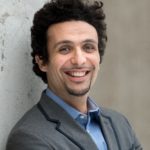
Mehdi Bennis
Centre for Wireless Communications, University of Oulu Academy of Finland Research Fellow Kvantum Institute, University of Oulu, Finland
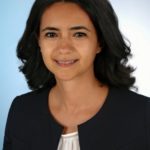
Myriam Rajih
Senior Development Engineer at Rohde & Schwarz GmbH & Co. KG, Munich Germany
Plenary Panel 2 (14 October 2019, 11:00 – 12:00):
Africa Funding Tools and Achievements
Background
At the crossroads, Africa must make choices for development and development of its urban centers.
Smart cities are regularly presented as the solution to the rampant urbanization of the Continent.
But is the classic Smart City model transposable in Africa? Yes, acquiescent smart city specialists who nevertheless emphasize the imperative to redevelop, redefine and adapt the concept to African realities.
Developing sustainable and affordable cities – What are the best strategies for making African cities more resilient to extreme climate challenges, including water scarcity, mass migration and energy supply?
How can we develop infrastructure and energy systems that can withstand the influx of large numbers of people migrating from rural areas to emerging market cities?
What are the possible modes of governance?
How can African institutions and governments help support investment in smart cities?
Key Objectives for discussion:
- Improving technical and cultural knowledge in the areas of sustainable urban planning by refining the tools to address urban regeneration issues in their complexity;
- Providing advanced techniques for sustainable urban regeneration in its various forms: mobility, technological networks, the system of greenery and centrality, the landscape, with special attention to the legal, administrative, social and environmental aspects.
Moderator & Panelist
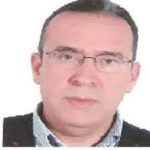
Hatem Bensta
Univ. Tunis EL Manar, Tunisia
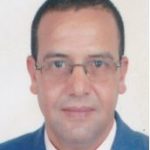
El m’kaddem Kheddioui
Univ. Hassan II Casablanca, GREENTIC/FSTM, Morocco
Panelists
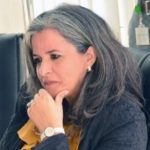
Hasnae BOUTZIL
Directeur général de la Société d’aménagement et développement vert (SADV)
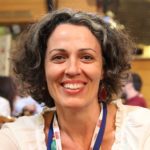
Nihel Amar
Ariana Municipality, Tunisia
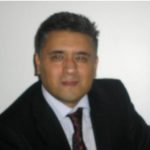
Tarek Bejaoui
Bizerte Smart City, Tunisia
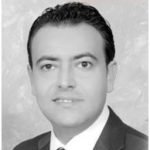
Fetah Krichene
Sfax Technopark, Tunisia
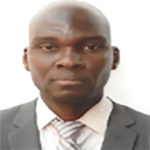
Ferdinand Guinko
Maître-Assistant en informatique chez Université Ouaga 1 Pr Joseph KI-ZERBO
Plenary Panel 3 (15 October 2019, 11:00 – 12:00):
Public-Private-People Partnership Approach for Smart Cities
Background:
Today we will discuss business models and the concept of public-private-people partnerships (PPPP) aimed at overcoming the limitations currently faced by public administration, listing the challenges that remain unresolved and pointing to possible solutions.
This is especially evident in the development of any “Smart City” program, where the importance of measuring economic, social, and environmental impact is critical to improving the service given to citizens and the efficiency of the administration in its role as city manager. But also because the nature of these “smart city” initiatives makes them strongly linked to major investments. Having the private sector, by building and strengthening new forms of public-private-people relationship, should allow us to generate more economic opportunities, create jobs and welfare, attract more investments into the city, and provide innovative solutions for better city management and the deployment of services and infrastructures to improve the life quality of citizens, as well as the efficiency of the administration in its role as city manager.
Key Objectives for discussion:
International Smart City Strategies and Insights What are the key challenges and developments for Smart Cities – What are the emerging trends in Smart City investment globally and how are they disrupting existing models?
Comparing Developed and Emerging Market Smart City investment plans – what is working and what can be learnt?
- Ensuring PPPP cooperation in smart city projects
- Working within a start-up environment and collaborating with third parties and different stakeholders
- The importance of transforming the culture of government organisations to drive change
- Identifying the key leaders and obtaining buy-in for Smart City Strategies
Moderator & Panelist
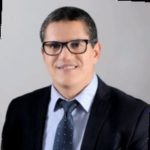
Omar BENAICHA
CEO Africa & Middle East Certi-Trust Digital Era
Panelists
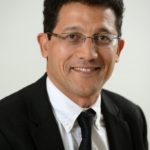
Zakaria FAHIM
President of the VSE Commission, SME,
GE-SME and Auto-entrepreneur CGEM

Nicolas J.A. Buchoud
Member of the executive board at International Biodiversity & Property Council (IBPC / CIBI)

Shay Bahramirad
Vice President- Engineering and Smart Grid at ComEd
Plenary Panel 4 (15 October 2019, 12:00 – 13:00):
The roles of IEEE Smart Cities Technical Community-Perspectives from Contributing Core members
Background
IEEE Smart Cities brings together IEEE’s broad array of technical societies and organizations to (1) advance the state of the art for smart city technologies for the benefit of society and (2) to set the global standard in this regard by serving as a neutral broker of information amongst industry, academic, and government stakeholders. Representatives from IEEE Smart Cities core members (IEEE Communications Society, IEEE Control Systems Society, IEEE Industry Applications Society, IEEE Power & Energy Society, IEEE Systems, Man, and Cybernetics Society and the Council on Electronic Automation Design) will highlight how the technologies and applications within their technical area are contributing to the overall Smart Cities development.
Moderator & Panelist

Daniel C. Toland
IEEE PES Program Director – IEEE Smart Cities
Panelists
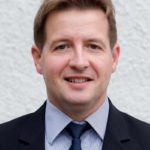
Rolland Vida
IEEE Communications Society High Speed Networks Laboratory (HSNLab) Budapest University of Technology and Economics

Jose Ayala Rodrigo
IEEE Council on Electronic Design Automation

Chiara Boccaletti
IEEE Industry Applications Society
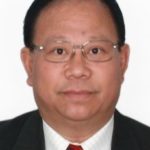
Loi Lei Lai
IEEE Systems, Man and Cybernetics Society – Loi Lei Lai
Plenary Panel 5 (16 October 2019, 12:00 – 13:00):
IEEE Smart Core Cities
Background
Many cities have deployed or are actively deploying technologies to improve mobility, public safety, public health, energy consumption and the overall quality of life of their cities. This is done in the context of active deployments of smart cities taking place today. This session will focus on the achievements of the different IEEE Cores Cities members.
Key Objectives for discussion:
- Improving technical and cultural knowledge in the areas of sustainable urban planning by refining the tools to address urban regeneration issues in their complexity;
- Providing advanced techniques for sustainable urban regeneration in its various forms: mobility, technological networks, the system of greenery and centrality, the landscape, with special attention to the legal, administrative, social and environmental aspects.
Moderator & Panelist

Daniel C. Toland
IEEE PES Program Director – IEEE Smart
Panelists
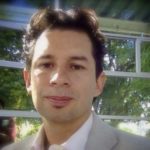
Victor Larios
Guadalajara, Mexico
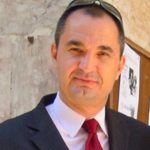
Andrea Molinari
Trento, Italy
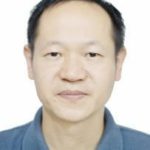
XiaoJun Wu
Wuxi, China
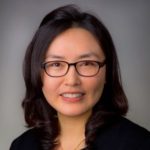
Baek-Young Choi
Kansas City, USA
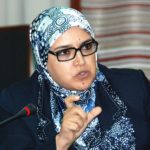
Fasly Hakima
Casablanca,Morocco
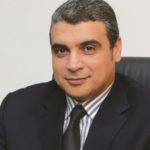
Mohamed Jouahri
Casablanca,Morocco
Plenary Panel 6 (17 October 2019, 11:30 – 13:00):
Funding schemes, smart urbanization, mobility, and Inclusiveness in smart cities
Background
Urban regeneration projects aim at the rehabilitation of impoverished urban neighbourhoods by large scale renovation or reconstruction of housing and public works. Urban regeneration is a process that takes time and involves comprehensive and integrated actions, which together aim at solving urban problems and bringing lasting improvements in the economic, physical, social and environmental condition of an urban area, ensuring affordability, access to facilities and involving local communities and residents.
But how should such interventions be pursued and managed to ensure economic, environmental and social sustainability? And what makes an urban regeneration project successful?
Key Objectives for discussion:
- Improving technical and cultural knowledge in the areas of sustainable urban planning by refining the tools to address urban regeneration issues in their complexity;
- Providing advanced techniques for sustainable urban regeneration in its various forms: mobility, technological networks, the system of greenery and centrality, the landscape, with special attention to the legal, administrative, social and environmental aspects.
Moderator & Panelist

Youssef El ganadi
Panelists
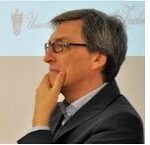
Prof. Michele ZAZZI
Università degli Studi di Parma, Italy is Associate Professor in Urban and Regional Planning at the Department of Engineering and Architecture at the University of Parma, Italy.
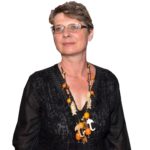
Prof. Debora Giorgi
Università di Firenze, Italy

Prof. Saverio Mecca
Università di Firenze, Italy
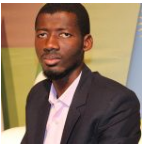
Ismael Kamate
Head of the ALGA HR Observatory for Local Authorities in Africa,
